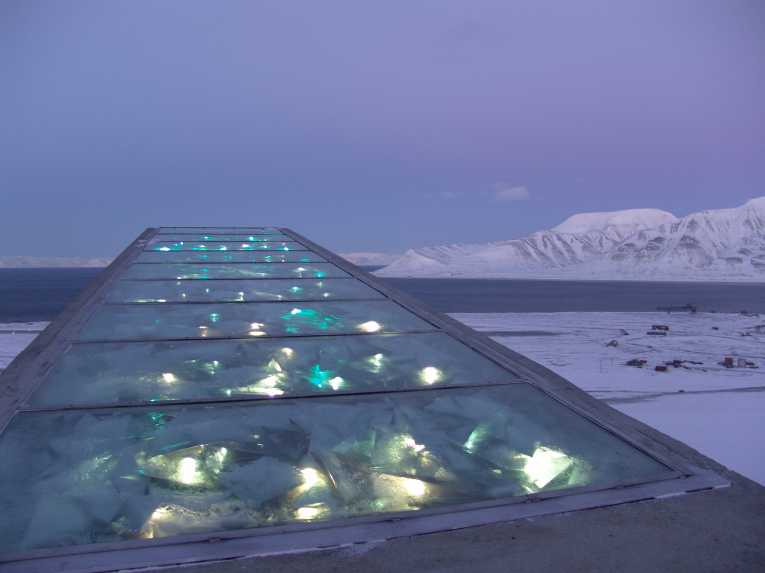Photo Credit: Mari Tefre/Svalbard Global Seed Vault.
A scientist based at an American university has deposited a series of desert plant seeds in a collection designed to protect species should they die out due to environmental events.
The University of Arizona (UA) has confirmed that Margaret Norem, a researcher from its Department of Arboretum Affairs, took the seeds to the Svalbard Global Seed Vault on a remote island off the coast of Norway, a few hundred miles from the North Pole.
The scientist, who has a doctorate in plant sciences, took seeds from 74 desert legume species collected from ten countries as part of the Desert Legume Program (DELEP), run by Boyce Thompson Arboretum State Park in Superior, Arizona and part of the UA's College of Agriculture and Life Sciences.
DELEP is only the third U.S. organisation to have seeds accepted by Svalbard and the seeds will be stored in a vault under a mountain near the Arctic Circle, which houses half a million seed samples to ensure their survival should species be overtaken by catastrophic events, be it natural disasters or dramatic shifts in the climate.
One key reason the seeds were accepted by Svalbard is that the species selected are important for farmers. Many of them, including alfalfa and cowpeas are widely sown for food and animal feed and others are used to nourish soil.
The idea of seed banks is widely credited to Russian botanist, Nicolai Vavilov, who collected 200,000 cultivated plants from around the world before falling victim to the Stalinist purge in 1943.
Margaret Norem said: ''The viability of the DELEP seeds sent to Svalbard is estimated to be more than 100 years for each species, so our descendants will be the ones responsible for replacing them.''










